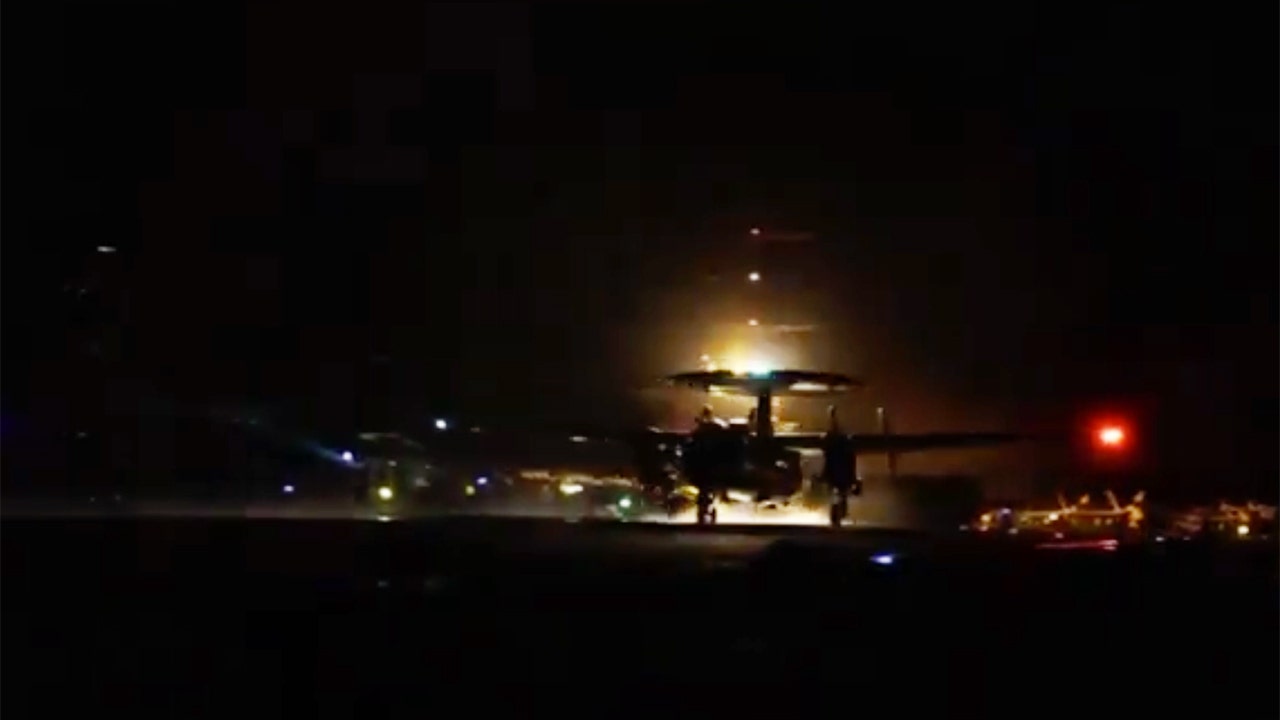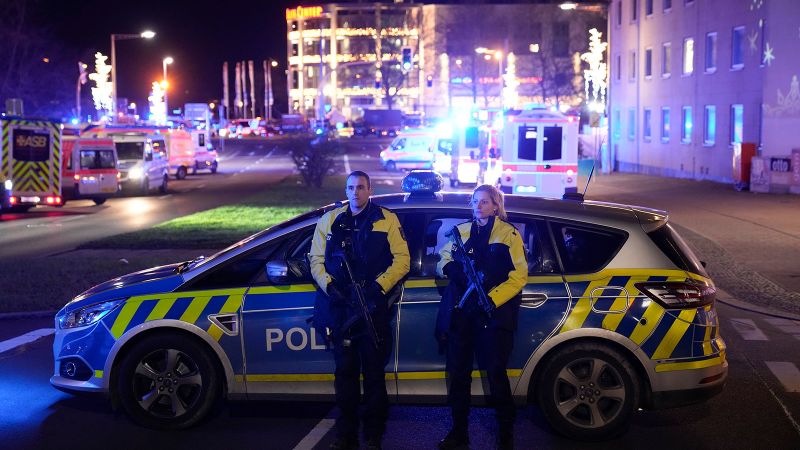World
US attacks Iran-backed Houthi rebels in Yemen with B-2 bombers
Iran warns it has ‘no red line’ as report emerges of Israel’s payback plan
Rocket barrages by Iran-backed Lebanese armed group Hezbollah triggered sirens across northern Israel.
U.S. B-2 bombers attacked weapons caches belonging to Iran-backed Houthi rebels in Yemen in a strike that appears to be the first such use of the strategic stealth bomber against the militia.
Defense Secretary Lloyd Austin said in a statement the late Wednesday operation was ordered by President Joe Biden to “further degrade” the Houthis’ ability to launch attacks on commercial and military ships in the Red Sea. The strikes could also be a warning to Iran at a time when Tehran and U.S. ally Israel have appeared on the verge of a full-blown war.
Austin did not mention Iran by name. However, he said the use of the B-2 bomber, which is the only warplane in the U.S. arsenal that can carry 30,000-pound so-called bunker busting bombs, “was a unique demonstration of the United States’ ability to target facilities that our adversaries seek to keep out of reach, no matter how deeply buried underground, hardened or fortified. The employment of U.S. Air Force B-2 Spirit long-range stealth bombers demonstrates U.S. global strike capabilities to take action against these targets when necessary, anytime, anywhere.”
The U.S.’s top defense official said the “precision strikes” targeted five “hardened” underground weapons storage locations in Houthi-controlled areas of Yemen. A separate statement from Tampa, Florida-based U.S. Central Command, or CENTCOM, said U.S. Navy “assets” also took part in the attack. CENTCOM said it was still assessing “battle damage,” but its initial findings “do not indicate civilian casualties.”
The U.S. Air Force describes the B-2 as a “multi-role bomber” capable of delivering conventional and nuclear munitions. It can fly for about 6,000 nautical miles without refueling. Its only operational base is in Missouri.
They support Palestinians in Gaza: But what do Yemen’s Houthi rebels really want?
Elsewhere in the Middle East:
∎ The EU’s foreign policy chief criticized the U.S. for giving Israel one month to improve the humanitarian situation in Gaza or risk losing military aid. A one-month delay “at the current pace of people being killed (is) too many people,” Josep Borrell told reporters ahead of a European Union leaders’ summit.
∎ A German warship operating as part of the United Nations’ peacekeeping mission in Lebanon shot down a drone off the coast Thursday, the German defense ministry said. It comes amid increasing concerns over the safety of the U.N. troops in the country as cross-border attacks between Hezbollah and Israel intensify.
Israel’s Defense Forces said that during operations in the Gaza Strip it had killed three Hamas militants and it was investigating whether one of them was Yahya Sinwar. Sinwar, a U.S.-designated terrorist, is regarded as the architect of Hamas’ Oct. 7, 2023, attacks on communities on southern Israel that killed 1,200 people and kidnapped more than 200 others. Sinwar assumed control of the group’s political bureau after Israel killed the previous leader, Ismail Haniyeh, in July.
Israeli officials have not yet confirmed that the body is that of Sinwar’s, according to a U.S. official who spoke on condition of anonymity. They are conducting DNA tests on the body, the source said.
− Kim Hjelmgaard an Tom Vanden Brook
Hamas leader Yahya Sinwar: Terrorist may have died in Israeli military strike
Hamas leaders on Thursday denied using the Abu Hussein school in Jabalia for military purposes. Israeli military said it targeted militants from Hamas and Islamic Jihad groups who operated from within the school that had been serving as a shelter for civilians displaced by the destruction of Gaza. Israel said the school housed dozens of weapons, ammunition, explosive devices and mortars. A chalkboard in one of the classrooms had been used by the militants and had inscriptions in Arabic praising the Hamas-led assault on Israel last October that ignited the war, the military said.
“Dozens of terrorists have been eliminated in precise strikes by Air Force aircraft and in face-to-face battles, and many weapons and buildings that the enemy had fortified for terrorist activities were destroyed,” the Israeli military said in a social media post.
In Yemen, the Houthis have sporadically attacked ships in the Red Sea, a key trade route, for years. But the attacks, mostly against civilian tankers and cargo ships, have spiked since the start of the latest war between Israel and Hamas last year. The Houthis have said its attacks are in solidarity with Hamas, which is also supported financially and with weapons by Iran, and Palestinians more generally.
Its increased attacks have prompted a growing number of U.S.-led strikes against Houthi targets including radars, runways, missile launch sites and logistics hubs. U.S. forces have also shot down Houthi attack drones and missiles targeted at Israel.
Still, Mohammed Albasha, an independent security analyst who specializes in Yemen, said the U.S. operation with B-2 bombers indicates “a shift in U.S. policy” to a “firmer stance against the group’s destabilizing behavior.”
Yemen specialists say the Houthis are a political movement, a military force and a religious group. They have been fighting in a civil war in Yemen since 2014 against a fledgling government that is backed militarily by Saudi Arabia, the United Arab Emirates and − indirectly, through weapons supplies − the U.S. and Britain.
Albasha said that beyond its maritime aggressions in the Red Sea and attacks on Israel, there are increasing reports of Houthi human rights violations inside Yemen involving aid workers, United Nations staff and international embassy personnel targeted with abductions and forced confessions leading to prosecutions in Houthi “state security courts.” The Houthis, whose leaders seek to emulate and install a strict form of a Shia Islam theocratic system called “Zaydism,” have increasingly restricted women’s freedoms, rights groups say.
Israel strikes hospital in Gaza: U.S. offers criticism
The latest Israel-Hamas war in the Gaza Strip, which began a year ago this month when Hamas attacked communities on Israel’s southern border, has mushroomed into a wider regional conflict that has seen Israel attack Iran-backed Hezbollah militants in Lebanon who it accuses of embedding in civilian areas to target northern Israel with missiles.
Hezbollah, like Yemen’s Houthis, has said it will keep up its attacks on Israel until there is a cease-fire in Gaza. Lebanon’s health ministry says more than 2,300 people have been killed in Lebanon since last October, three-quarters of them in the past month. The fighting has displaced about 1.2 million people in Lebanon.
U.S. soldiers arrive in Israel: The aim? Help thwart Iran missile attacks
The fighting between Israel and groups backed by Iran has threatened to spill over into a larger, direct confrontation between the longtime adversaries after Iran fired a barrage of ballistic missiles at Israel earlier this month. Iran said it was a retaliatory strike for Israel’s killing of Hezbollah leader Hassan Nasrallah and other commanders. Israel has vowed to respond to that attack, but it’s not clear exactly how and when and with what force.
Contributing: Reuters










